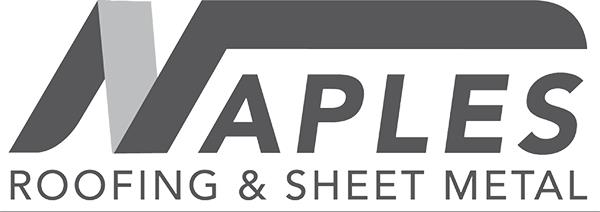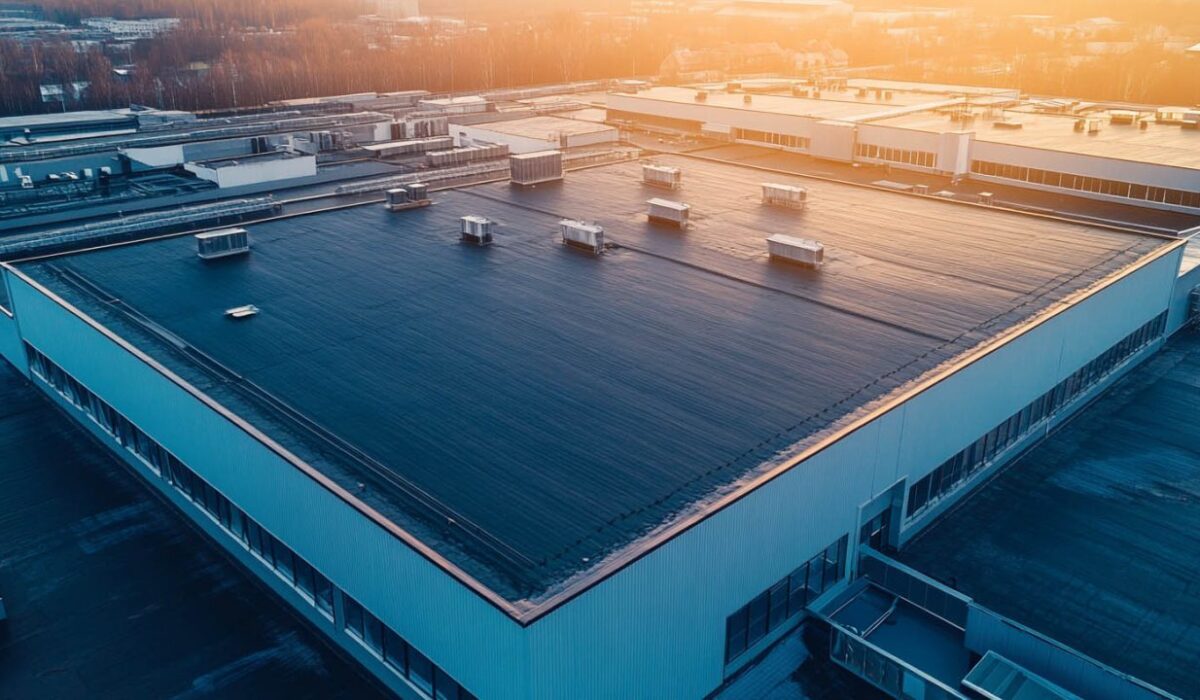What are Commercial Industrial Roofing Services?
Commercial industrial roofing services, offered by a reputable commercial industrial roofing contractor US, enclose an extensive diversity of specialized roofing solutions tailored for industrial and large-scale commercial properties. moreover, these solutions serve the unusual requirements of facilities such as warehouses, factories, distribution centers, retail complexes, and office buildings. Therefore with their distinct architectural and modest needs, commercial and industrial structures require expert roofing systems that ensure durability, efficiency, and long-term performance.
Types of Industrial Commercial Roofing Services
1. Roof Installation: Industrial Commercial Roofing
Professionally installed roofing systems are the foundation of any industrial or commercial property. Moreover, roofing contractors assess the specific needs of the building, considering factors like size, location, and operational requirements. Popular materials for these installations include:
- Metal Roofing: renowned for being long-lasting and resilient.
- TPO (Thermoplastic Polyolefin): A cost-effective, energy-efficient option.
- EPDM (Ethylene Propylene Diene Monomer): A reliable rubber roofing solution.
- Built-Up Roofing (BUR): Offers excellent protection for flat or low-slope roofs.
2. Roof Repairs
Over time, industrial and commercial roofs may develop issues such as leaks, punctures, or membrane tears. Moreover, roofing professionals provide timely repair services to prevent further damage and maintain the structural integrity of the building.
3. Roof Maintenance
Routine maintenance services are essential for prolonging the lifespan of a roof. Moreover, regular inspections, cleaning, and minor repairs help identify potential problems early and ensure the roofing system remains in optimal condition. Therefore for businesses in need of reliable services, an industrial roofing contractor in New York can provide expert maintenance tailored to the unique needs of industrial properties.
4. Roof Replacement: Industrial Commercial Roofing
When a roof reaches the end of its useful life, a complete replacement may be necessary. Moreover, this service involves removing the old roofing material, industrial commercial roofing, and installing a new, high-performance system that meets current industry standards.
5. Roof Coatings
Roof coatings are an economical way to extend the life of a roof and improve its energy efficiency. Coatings such as acrylic, silicone, or polyurethane create a protective layer that reduces wear and tear while enhancing the building’s insulation properties.
6. Emergency Roofing Services
Unexpected weather events or accidents can cause significant damage to industrial and commercial roofs. Therefore emergency services ensure that repairs are carried out promptly to minimize downtime and protect the building’s assets.
Benefits of Industrial Commercial Roofing Services:
1. Improved Durability
Specialized roofing systems and industrial commercial roofing are designed to withstand harsh environmental conditions, heavy foot traffic, and industrial wear and tear.
2. Energy Efficiency
Moreover, modern roofing materials and coatings improve insulation and reflect sunlight, leading to reduced energy costs.
3. Compliance with Regulations
Moreover, Professional roofing contractors and industrial commercial roofing roofers ensure that installations and repairs comply with local building codes and safety regulations.
4. Cost Savings
Therefore, regular maintenance and timely repairs help avoid costly replacements and minimize disruptions to business operations.
5. Custom Solutions
Moreover, each industrial and commercial property has unique roofing requirements. Roofing services are tailored to meet these specific needs, ensuring optimal performance.
Choosing the Right Industrial Commercial Roofing Contractor
For any roofing project to be successful, choosing a trustworthy roofing contractor is essential. Consider the following factors:
- Experience and Expertise: Moreover, look for contractors with a proven track record in handling commercial and industrial roofing projects.
- Certifications and Licenses: Ensure the company is licensed and certified to perform roofing services in your area.
- Reputation: To determine client happiness, look through internet reviews and testimonies.
- Warranty and Insurance: Verify that the contractor provides warranties for their work and carries appropriate insurance coverage.
Let’s talk about Common Issues in Industrial Commercial Roofing:
Commercial and industrial roofs are built to be durable and long-lasting, but they are not immune to problems. Therefor these roofing systems have particular difficulties because of their size, intricacy, and exposure to adverse environments.
Addressing these issues promptly is essential to maintain the integrity of the structure and avoid costly repairs. For reliable solutions, commercial and industrial roofing contractors in usa are equipped to handle these challenges with expertise and efficiency. Here are some of the most common issues encountered in commercial and industrial roofs:
1. Leaks and Water Damage
Leaks are among the most prevalent problems in commercial and industrial roofing systems. They often result from:
- Damaged or aging roofing materials.
- Poor installation or defective seams.
- Clogged drainage systems causing water to pool.
Water infiltration can lead to structural damage, mold growth, and compromised insulation if not addressed quickly.
2. Ponding Water
Flat or low-slope roofs are particularly prone to ponding water, which occurs when water collects and remains on the roof for an extended period. Therefore this can weaken the roofing materials, cause leaks, and accelerate wear and tear.
Solution:
- Regularly inspect and clean drainage systems.
- Use tapered insulation or install additional drainage outlets to prevent water accumulation.
3. Membrane Tears or Punctures
Roof membranes, such as TPO or EPDM, are susceptible to tears, punctures, or cracks caused by:
- Heavy foot traffic from maintenance personnel.
- Impact from tools, debris, or falling objects.
The roof’s capacity to produce a waterproof barrier is jeopardized by damaged membranes.
4. Blistering and Cracking
Moreover, blisters or cracks in roofing and industrial commercial roofing materials are often caused by trapped moisture, extreme temperature fluctuations, or aging materials. These issues weaken the roof and increase the risk of leaks.
Solution:
- Ensure proper installation with adequate ventilation.
- Use high-quality, weather-resistant materials to prevent early deterioration.
5. UV Damage
Prolonged exposure to ultraviolet (UV) rays can degrade industrial commercial roofing and roofing materials, leading to fading, cracking, or brittleness. This is particularly prevalent on older roofs that don’t have reflecting coatings.
Solution:
- Apply UV-resistant coatings or reflective materials to protect the roof from sun damage.
6. Flashing Failures
Flashing is used to seal and protect roof edges, vents, and joints. Moreover, when flashing becomes loose, corroded, or improperly installed, it allows water to seep into the structure.
Solution:
- Inspect flashing regularly and replace damaged sections promptly.
- Use durable, weather-resistant materials for flashing installations.
7. Wind and Storm Damage
High winds, hail, and severe storms can cause significant damage to commercial roofs, including:
- Uplifted or missing materials.
- Impact damage from debris.
- Weakening of roof fasteners.
Solution:
- Schedule inspections after major weather events.
- Reinforce vulnerable areas with wind-resistant materials.
8. Improper Installation
Poor installation practices can lead to premature roof failure, uneven surfaces, and frequent issues. Therefore common mistakes include incorrect material selection, insufficient drainage planning, and faulty seams.
Solution:
- Employ roofing professionals with a track record of success who are certified and experienced.
- Ensure that the industrial commercial roofing system matches the building’s specific needs and conditions.
9. Thermal Expansion and Contraction
Commercial and industrial roofs are subjected to constant thermal cycling, causing materials to expand and contract. Over time, this can lead to cracks, splits, and weakened seams. To address these issues effectively, industrial commercial roofing solutions are essential, ensuring that the roofing system is designed to withstand these stresses and maintain long-term performance.
Solution:
- Use flexible, high-performance materials designed to withstand thermal movement.
- Frequent upkeep to identify and fix damage early on.
10. Clogged Gutters and Drains
Debris such as leaves, dirt, and trash can accumulate in gutters and drainage systems, leading to blockages. Therefore this prevents water from flowing off the roof, causing ponding and potential water damage.
Solution:
- Implement a regular cleaning schedule for gutters and drains.
- Install guards or covers to minimize debris buildup.
Conclusion:
Commercial industrial roofing services are crucial for large-scale properties, offering specialized solutions like installation, repair, maintenance, and emergency services. Therefore they provide enhanced durability, energy efficiency, compliance with regulations, and cost savings. Proactive maintenance and timely repairs are essential for long-term performance and protection. For businesses in the Buffalo area, an Industrial roofing contractor buffalo,ny can ensure that your roofing needs are met with expertise and reliability. Choosing an experienced contractor ensures the property’s value and efficiency.


